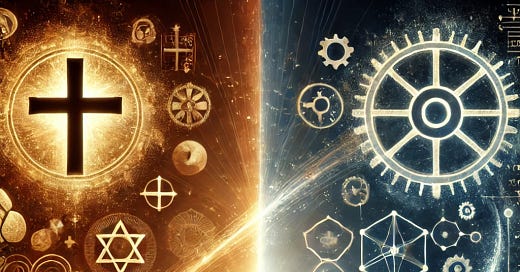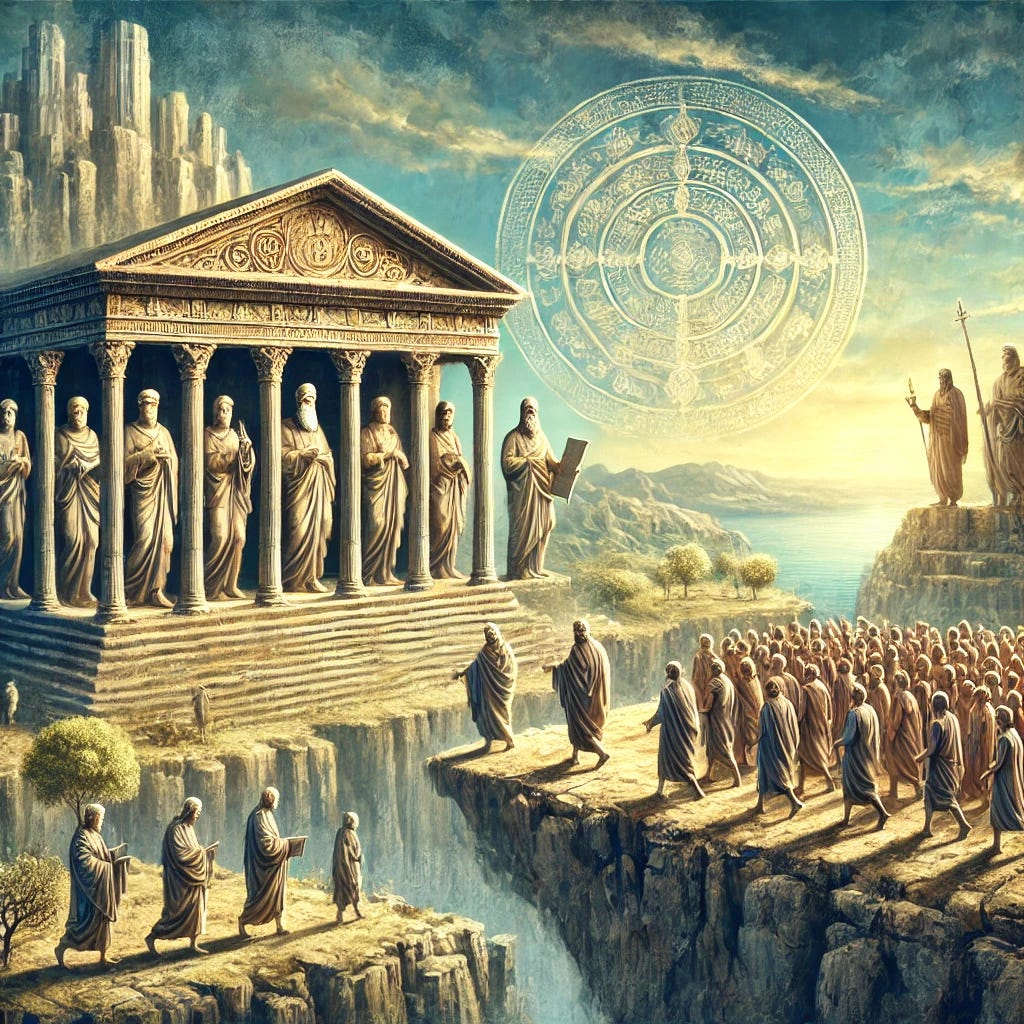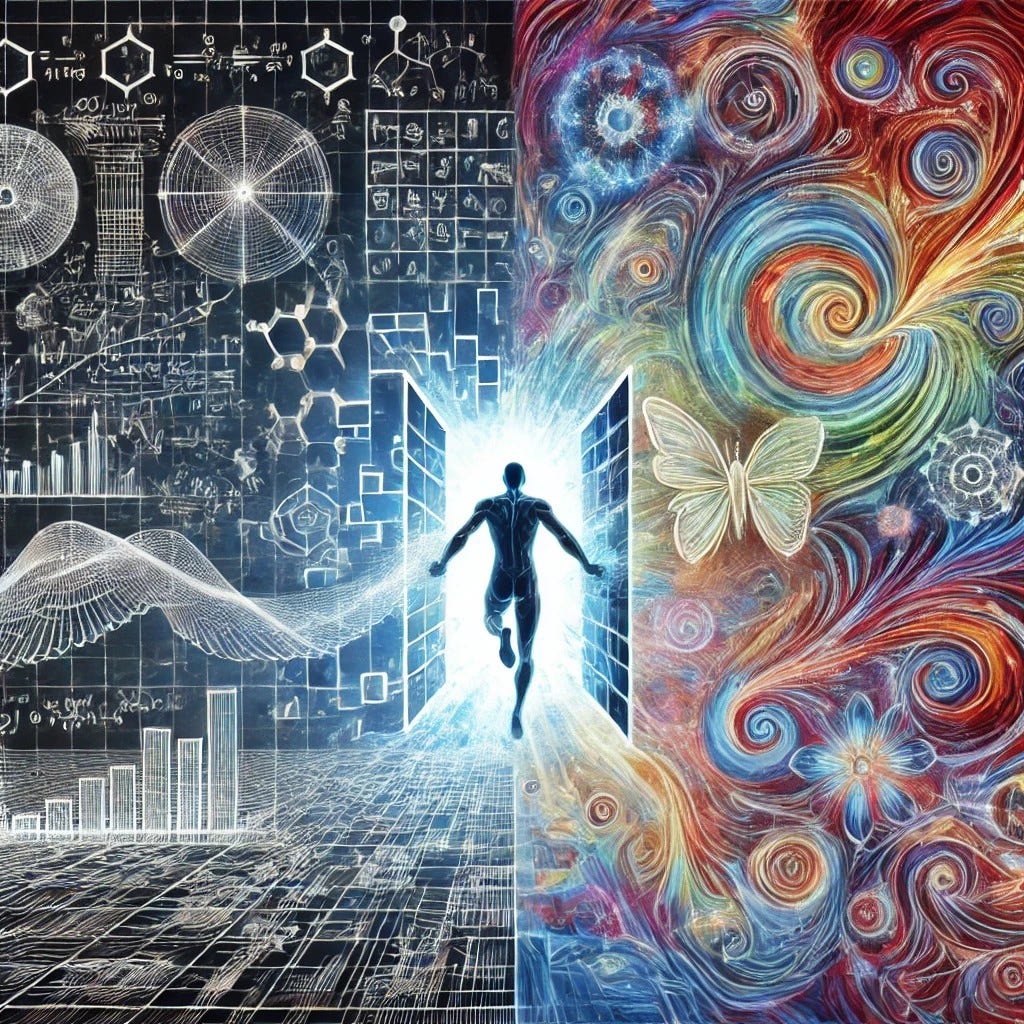Throughout the course of human history, paradigms—those overarching frameworks of understanding—have shaped how societies view the world and respond to the challenges they face. From the mythologies of ancient cultures to the religious doctrines that guided medieval life, each era has lived according to the prevailing system of thought that defined its sense of morality, progress, and truth. Religion, in its earliest forms, can be understood as one such paradigm—a reform movement that aimed to elevate human beings from more primitive, instinctual behaviors to a structured moral order. Yet, just as religious thinking once rose to prominence as a force for social cohesion, it has increasingly become a hindrance to progress in our modern, secular world.
Today, our dominant paradigm is one of scientific rationalism. We live in an era where reason, evidence, and empirical knowledge are held as the highest standards for understanding the world and shaping our future. The triumph of this rationalist mindset has undeniably brought immense benefits—technological advancements, medical breakthroughs, and social reforms grounded in human rights and individual autonomy. However, as with any paradigm, the danger lies in becoming so entrenched in its logic that we fail to recognize its limitations. Just as those who once lived by the mythologies of their heritage eventually had to reckon with the inadequacy of their worldview, we in the modern era may also need to prepare ourselves to cast off the very framework that has, up until now, driven our notion of progress.
Religion, once seen as a guiding force for morality, is now often viewed as an obstacle to secular reforms that aim to address complex social issues in a more scientific, rational manner. In areas such as reproductive rights, gender equality, and end-of-life decisions, religious doctrines frequently clash with contemporary secular values. Freethinkers—those who embrace reason and logic—have consistently been at the forefront of advocating for change, resisting the inertia of religious orthodoxy that has sought to maintain outdated moral structures. But in doing so, they are also advancing the dominance of a new paradigm: one that privileges reason over belief, data over myth, and progress over tradition.
This paradigm of scientific rationalism has indeed fostered immense social progress. Freethinkers have led movements for prison reform, mental health care, and women’s suffrage, often in direct opposition to religious forces that sought to preserve the status quo. Figures like Cesare Beccaria, who argued for more humane criminal justice systems, and Dorothea Dix, who advocated for compassionate care for the mentally ill, helped shift society away from religiously justified forms of punishment and exclusion. Similarly, secular activists such as Elizabeth Cady Stanton and Margaret Sanger fought for women’s rights, challenging the religious doctrines that upheld patriarchal structures and denying women control over their own bodies.
In these examples, rationalist thinking triumphed over religious dogma, allowing for the creation of more just and equitable social systems. But it’s important to recognize that this shift wasn’t just a clash between religion and reason—it was a transformation from one paradigm to another. Rationalism, in its own way, has become a new form of orthodoxy, with its own set of assumptions about how the world works and how we ought to progress. And while this paradigm has served us well, we must be cautious about becoming too wedded to its principles, lest we, like those before us, become trapped by the very system of thought that once freed us.
The history of human progress is marked by the rise and fall of paradigms. Ancient mythologies once provided a framework for understanding the world, explaining natural phenomena, and establishing social order. Yet, as human societies evolved, the limitations of these mythologies became clear. New systems of thought, particularly those rooted in religion, offered a more structured, moral vision of human life. Over time, however, these religious paradigms too began to show their limitations, giving way to the rationalist and scientific thinking that now dominates our worldview. But just as religious systems eventually became obstacles to further progress, so too might our current paradigm of rationalism reach its limits.
There are already signs that the rationalist paradigm, while powerful, may not be sufficient to address all the challenges we face in the future. Technological advancements, for example, have outpaced our moral frameworks, raising questions about the ethics of artificial intelligence, genetic engineering, and climate change—issues that our current systems of rational thinking may struggle to fully grasp. Moreover, the emphasis on empirical evidence and quantifiable progress can sometimes lead to an overly mechanistic view of human life, reducing complex social and emotional experiences to data points. In our pursuit of progress, we risk losing sight of the deeper, more intangible aspects of existence that cannot be easily measured or explained.
It is possible that, sooner rather than later, we may need to cast off the rationalist paradigm in favor of a new framework—one that integrates reason with other ways of knowing, one that acknowledges the limits of empirical thinking and makes space for more holistic, interconnected approaches to understanding the world. Just as past civilizations had to move beyond the mythologies that once guided them, we may need to expand our conception of progress beyond the purely rational, embracing a more complex, nuanced view of what it means to thrive as individuals and societies.
This does not mean abandoning the achievements of rationalism, but rather recognizing its boundaries and being open to new forms of thinking. The freethinkers who once challenged religious orthodoxy did not do so simply to replace one rigid system with another—they sought to expand the possibilities for human progress by questioning the assumptions of their time. We, too, must be willing to question our own assumptions, even those that seem foundational to our current understanding of the world.
Look, while religion may have originally emerged as a reform movement to curb destructive, primitive behaviors, its role as a force for progress has largely waned in the face of scientific rationalism. Freethinkers have pushed society forward by challenging religious dogma and advocating for secular reforms. Yet, just as those who lived by ancient mythologies eventually had to move beyond them, we may find ourselves needing to transcend the rationalist paradigm that has defined our modern era. Progress is not a linear path, and as we face new challenges in the future, we must be ready to cast off our current frameworks when they no longer serve us—just as we have done so many times before in the history of human civilization.







